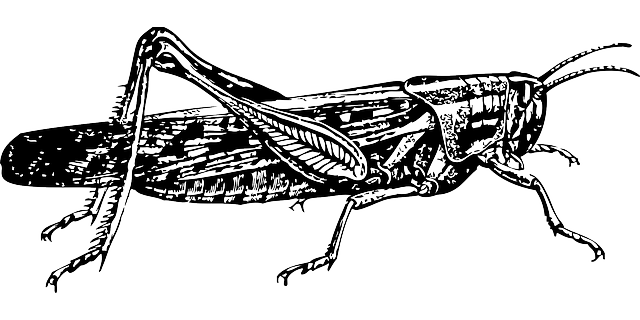Integrated Pest Management (IPM) is an eco-conscious residential pest control solution prioritizing sustainability and minimizing environmental impact. This holistic approach combines biological controls, cultural practices, and physical barriers to reduce synthetic pesticide use, preserve biodiversity, and ensure a healthier home. IPM's focus on prevention, non-chemical methods, and targeted applications makes it an effective yet environmentally friendly choice for those seeking responsible pest control while aligning with their ecological values.
“Discover the future of eco-friendly pest management with Integrated Pest Management (IPM) programs, tailored for conscious clients. This comprehensive guide explores how IPM, a holistic approach, revolutionizes residential pest control. From understanding its principles to implementing effective systems, we delve into the benefits and best practices. Learn why this method is not just a trend but a sustainable solution for your home, ensuring a healthier environment without compromising on safety or comfort in our bustling communities.”
Understanding Integrated Pest Management (IPM) for Eco-Conscious Clients
Integrated Pest Management (IPM) is a holistic approach to pest control that prioritizes the well-being of both the environment and humans. Unlike traditional methods, IPM doesn’t rely heavily on synthetic pesticides. Instead, it combines various strategies such as biological controls (introducing natural predators), cultural practices (maintaining clean environments), and physical barriers to manage pests effectively. This eco-conscious method is particularly appealing to clients concerned about the environmental impact of residential pest control.
For eco-conscious clients seeking residential pest control, IPM offers a safe and sustainable alternative. By integrating these diverse techniques, IPM minimizes the use of harmful chemicals, reduces pollution, and promotes biodiversity. This not only ensures a healthier home environment but also contributes to the preservation of local ecosystems. Understanding these principles can help clients make informed decisions, aligning their residential pest control choices with their eco-friendly values.
Benefits of IPM Programs in Residential Pest Control
Integrated Pest Management (IPM) programs offer a host of benefits for eco-conscious clients seeking residential pest control solutions. By adopting an IPM approach, homeowners can enjoy a more sustainable and environmentally friendly way to manage pests. This method involves a combination of techniques, including biological controls, cultural practices, and targeted chemical applications, all tailored to the specific pest and its lifecycle. Unlike traditional pest control methods that rely heavily on synthetic chemicals, IPM focuses on minimizing the use of harmful substances by utilizing natural predators, plants resistant to pests, and other non-toxic strategies.
One significant advantage is the reduced environmental impact. Conventional pest control often leaves a trail of toxic residues, which can contaminate soil, water sources, and even indoor air. In contrast, IPM programs prioritize safety and sustainability, ensuring that both residents and the surrounding ecosystem remain unharmed. Additionally, by targeting only the intended pests, IPM helps to preserve beneficial insects and wildlife, fostering a more balanced ecosystem right in one’s backyard. This holistic approach not only benefits the client but also contributes to the overall health and resilience of the local environment.
Implementing and Maintaining an Effective IPM System
Implementing and maintaining an effective Integrated Pest Management (IPM) system is a key aspect for eco-conscious clients in residential areas. It involves a comprehensive approach that combines various strategies, from cultural practices to biological controls, minimizing the reliance on synthetic pesticides. This method not only protects the environment but also promotes a healthier living space for residents.
Regular monitoring and inspection are vital to ensure the success of an IPM program. By identifying pest issues early and understanding their behavior, professionals can implement targeted interventions. This includes using eco-friendly products, maintaining good sanitation practices, and encouraging natural predators. Regular communication between clients and pest control experts is essential to adapt strategies as needed, ensuring a sustainable and effective residential pest control solution.
Best Practices for Communicating IPM to Eco-Minded Customers
When communicating Integrated Pest Management (IPM) strategies to eco-conscious clients in the context of residential pest control, clarity and transparency are key. Emphasize that IPM is an eco-friendly approach that prioritizes prevention, non-chemical methods, and targeted applications of minimal risk pesticides when necessary. Highlight how this method avoids broad-spectrum chemicals, reducing potential harm to local ecosystems, beneficial insects, and pets.
Tailor your explanation to address specific environmental concerns often held by eco-minded customers. Explain the benefits of using natural predators, traps, and organic pesticides as part of an integrated approach. Provide real-world examples demonstrating how IPM can effectively manage pests while maintaining a healthy balance in the environment, ensuring long-term pest control without compromising the client’s ecological values.
Integrated Pest Management (IPM) offers a sustainable and eco-friendly approach to residential pest control, addressing the needs of environmentally conscious clients. By combining biological, cultural, and chemical methods, IPM programs minimize the use of harmful chemicals and reduce environmental impact. Through implementing these strategies, homeowners can enjoy a pest-free environment while contributing to a healthier planet. Effective communication with eco-minded customers is key, highlighting the benefits of IPM’s reduced toxicity, ecological preservation, and long-term cost savings. Adopting IPM practices in residential pest control is not just a trend but a responsible step towards a greener future.
